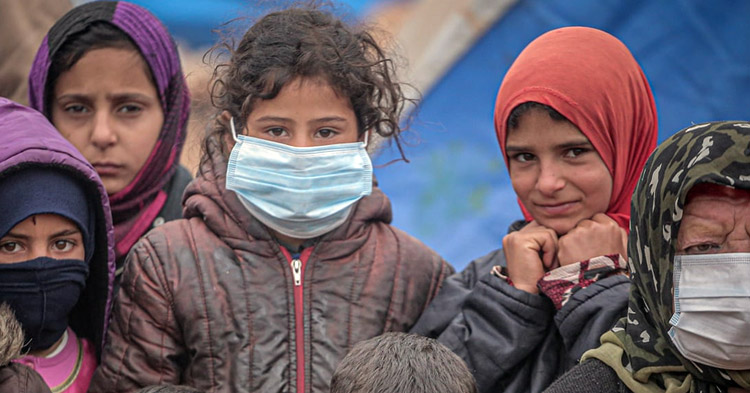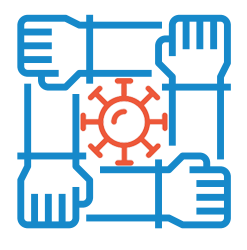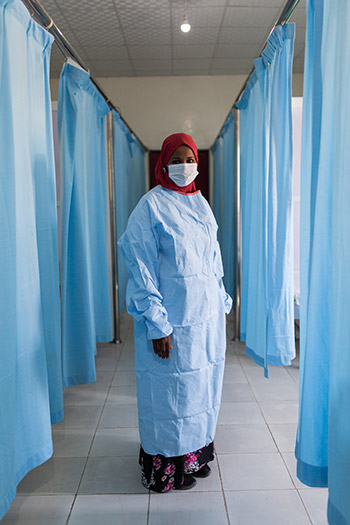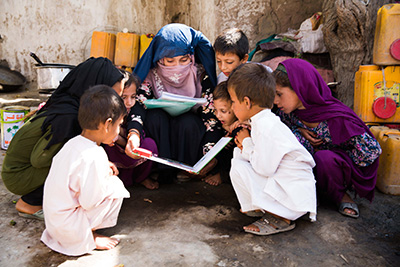
COVID-19 has hit us all. Nonetheless the impact has been harshest of all on people already experiencing inequities as a result of poverty, gender, ethnicity, education, occupation, migrant status, disability and discrimination, because they are likely to be disproportionately vulnerable to exposure to the disease, less able to access the health services they need, and more likely to experience adverse consequences as a result of measures implemented to contain the pandemic.
Sadly, COVID-19 is not the only health issue to have its gravest impact on people who are socially, economically, or geographically disadvantaged. Inequities undermine our efforts to protect, promote and improve health for all, as well as threaten social and economic development worldwide.
These inequities are not new. In spite of impressive achievements in improving health and life expectancy and reducing premature mortality, these gains are not shared equally across different sections of society or within and across nations.
Gender inequalities and discrimination based on age, sex, ethnicity or disability for example, intersect with lower educational outcomes, higher rates of material deprivation, income insecurity and/or the risk of poverty to create entrenched pockets of disadvantage. This is reflected in inequity of opportunities to lead a healthy life and/or inequities in access to health services.
 COVID-19 has instilled a sense of urgency for governments, sectors and communities to act together to address health inequities, improve the social, economic and environmental determinants of health and to improve the health and well-being of children, young people, individuals and communities, in the settings where they grow up, live, play, learn and work. Multiple vulnerabilities limit the well-being and life opportunities of individuals and communities, and COVID-19 has demonstrated this on a global scale. But they are not inevitable.
COVID-19 has instilled a sense of urgency for governments, sectors and communities to act together to address health inequities, improve the social, economic and environmental determinants of health and to improve the health and well-being of children, young people, individuals and communities, in the settings where they grow up, live, play, learn and work. Multiple vulnerabilities limit the well-being and life opportunities of individuals and communities, and COVID-19 has demonstrated this on a global scale. But they are not inevitable.
These are challenges that affect all governments, all sectors and all societies. Many countries are already taking steps to meet these challenges and are committed to responding to the health needs of all their populations and improving well-being.
Leaving no one behind
 Different solutions are needed to tackle the major challenges which hamper our success. We also need to use opportunities to accelerate progress. This includes reducing social inequities, protecting human rights, improving gender equality and building resilient communities. It also includes protecting natural resources and sustaining public systems to enable all in society to achieve their full potential, and to safeguard their well-being through difficult periods.
Different solutions are needed to tackle the major challenges which hamper our success. We also need to use opportunities to accelerate progress. This includes reducing social inequities, protecting human rights, improving gender equality and building resilient communities. It also includes protecting natural resources and sustaining public systems to enable all in society to achieve their full potential, and to safeguard their well-being through difficult periods.
COVID-19 is just the latest example of why WHO is so focused on achieving health for all and improving social, economic and environmental conditions in order that people can fulfil their full health potential and overcome barriers that prevent them from accessing quality health services that should be available everywhere and to everyone.
Ensuring inclusiveness and health equity is central to fulfilling our global commitments outlined in the United Nations 2030 Agenda for Sustainable Development and the 17 Sustainable Development Goals (SDGs). The SDGs are interrelated and supporting countries to reach these goals and ‘leave no one behind’ means everyone, including communities, working together. Joint action on the SDGs – such as addressing the root causes of exclusion and poverty, achieving gender equality, guaranteeing food and nutrition security, ensuring access to quality and equitable education and lifelong learning, achieving universal health coverage, as well as fighting climate change by protecting the environment, contributes to achieving health equity globally, nationally and locally.
 The evidence is clear: giving both girls and boys an equally good start in life and addressing health across the life course is essential to generate dividends for the well-being, development, sustainability and resilience of today’s society and for future generations. Universal health coverage, based on primary health care, and social protection systems are key to keeping the whole of society healthy and productive, enabling countries to build back better from the pandemic, and improve preparedness to cope with future disease outbreaks and other health and economic shocks, achieve inclusive economic growth and sustainable development with equitable social outcomes.
The evidence is clear: giving both girls and boys an equally good start in life and addressing health across the life course is essential to generate dividends for the well-being, development, sustainability and resilience of today’s society and for future generations. Universal health coverage, based on primary health care, and social protection systems are key to keeping the whole of society healthy and productive, enabling countries to build back better from the pandemic, and improve preparedness to cope with future disease outbreaks and other health and economic shocks, achieve inclusive economic growth and sustainable development with equitable social outcomes.
Related link
World Health Day 2021: Together we can reach a fairer and healthier world


